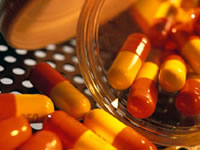The temperature inside the house was over 38 degrees Celsius (100 degrees Fahrenheit).
Last summer, seven people died of heatstroke in Texas. In the big heat wave of 1980, 78 people died.
"Heat has always been a health problem for Texas," says David Vaughan of the Texas Department of Health in Austin. "We get some real scorchers."
Texas and other southern states have the highest rates of heat illnesses and deaths, but such deaths can occur nearly anywhere. Typically, about 240 people in the United States die from heat illnesses each year, according to the national Centers for Disease Control and Prevention. During heat waves, that number has risen to as high as 1,700.
Heatstroke is one of several maladies known as heat illness. The others are heat syncope, heat cramps, and heat exhaustion. All of them occur when the body's ability to regulate its own heat is impaired, either because of exercise or exposure to hot temperatures. Certain health conditions and medications also increase the likelihood of heatstroke.
But, says Elizabeth Koller, M.D., an outdoor enthusiast and endocrinologist in FDA's Center for Drug Evaluation and Research, "Heatstroke is entirely preventable." Yet when it strikes, it becomes life-threatening.
"If someone is overheating, you have only minutes to do something about it," she says. "You have to cool them down as quickly as you can. Once their brain is overheated, that's it."
Body Heat Control
Our bodies are like car engines. They chug along, producing heat in the process. The skin and blood are like the cooling system of the car. Blood warms up as it passes through muscles and tissue. It carries extra heat to the surface of the skin, where the surrounding air cools it.Unlike an engine, however, our bodies have the benefit of sweat, a very efficient cooling liquid. For example, a pearl-sized bead of sweat can cool nearly one liter (about 1 quart) of blood 1.8 C (1 F), using 580 calories in the process.
But in hot, humid weather, sweat doesn't work as well. The surrounding air is already warm and heavy with humidity, and it cannot absorb extra heat and sweat. So the body begins to warm up, and the heart begins pumping more blood to the skin to release the extra heat. Even if you sit still, your heart will beat faster. Have you ever felt tired after a day spent lounging on the beach? That fatigue comes from your heart working overtime to cool your body. If you sweat a great deal of water and lose enough minerals, you could develop one or more heat illnesses.
The mildest, most common heat syndrome is called heat cramps. It usually occurs in people who have been exercising in hot, humid weather. As the victim sweats, minerals are excreted from the body. This mineral depletion causes muscles to contract in slow, painful spasms lasting one to three minutes, usually after the person has stopped exercising. A person with heat cramps needs fluids, extra salts, a cooler environment, and rest.
A second syndrome is heat exhaustion (it has also been termed heat syncope or heat collapse). This syndrome occurs when a person has lost either too much water or too much salt through sweating. Depending on the cause, the victim may or may not have an elevated temperature. In either case, he or she will feel thirsty, nauseated, headachy, weak, and confused. The victim may soon pass out, pulse racing. A heat exhaustion victim needs to lie flat in a cool place, with water and electrolyte fluids to drink as soon as he or she regains consciousness. Intravenous fluids might be necessary.
Danger: Heatstroke
The most dangerous heat illness is heatstroke. Heatstroke is a life-threatening medical emergency. The victim may develop headache, slurred speech, dizziness, faintness, hallucinations, seizures, and may even become comatose. Body temperature soars to 40 C (104 F) or more. The person becomes so dehydrated that the skin no longer sweats and is hot and dry to the touch.There are two types of heatstroke: classic and exertional. Classic heatstroke occurs in individuals who don't sweat normally, either because of a disease or certain medications. Without normal sweating, it's difficult for a person to handle hot, humid weather. The typical victim of classic heatstroke is an older adult who lives without air conditioning and has underlying health problems, such as heart disease or diabetes.
Classic heatstroke can take two or three days to develop, but it is very dangerous. Studies have shown that even a few hours of air conditioning each day can prevent the condition.
Exertional heatstroke, on the other hand, happens quickly--often after only a few hours of exercise. The skin is able to sweat, but the body still overheats because of the combination of hot weather, extra activity, and dehydration. Exertional heatstroke victims are usually young, otherwise healthy people, such as runners and football players.
Exertional heatstroke has long been studied by the military. The U.S. Marines at Parris Island, S.C., for example, have studied heat illness among new recruits. They found that even though soldiers train in the early morning and are required to drink lots of water, as many as 2 percent of them will suffer heat illnesses during the summer months, and about 1 percent in the winter. The risk of exertional heat injuries depends on the heat and humidity, the soldier's fitness level, and whether or not the person is used to hot weather.
The treatment for both classic and exertional heatstroke is the same: Cool the victim as quickly as possible with whatever means available--for example, wet sheets, a fan, or ice under the armpits. (While the military routinely uses ice to cool heatstroke victims, some studies have shown this can also cause frostbite.) Give the victim liquids, if possible, and get medical attention immediately. Early treatment increases a heatstroke victim's chance of survival.
Who's at Risk
Certain health conditions increase a person's risk of heat illness. Obesity, sweat gland diseases, diabetes, dehydration (a shortage of body fluids), malnutrition, low blood pressure, and heart disease all make it difficult for the body to regulate heat. In many instances, patients have more than one of these conditions. Older adults, especially, are more likely to have multiple health problems.Older adults also are more likely to take medicines that impair the body's ability to regulate heat. Some drugs slow sweat production. These include anticholinergics (used to treat Parkinson's disease), antihistamines (for allergies), phenothiazines (tranquilizers), tricyclic antidepressants, and diuretics (for high blood pressure). Some restrict blood flow to the skin, impairing the body's ability to release heat. These include cardiovascular drugs, such as vasoconstrictors and beta blockers.
If you or someone you know lives without air conditioning and takes any of these medicines, ask a doctor or pharmacist about the medicine's possible ill effects in hot weather.
Also at risk are people who use illicit drugs, such as LSD, cocaine and amphetamines. These drugs increase muscle activity and body heat. Excessive alcohol use greatly increases a person's risk for heat illness, too. Alcohol causes the body to excrete water, leading to dehydration.
People who are unable to move about easily--for example, disabled, homeless, and very poor people--are at a higher risk for heat illness because they often cannot afford air conditioning or get to a place that has it. Also, children under 2 can be prone to heat illness because their small bodies cannot regulate body heat as efficiently as older children or adults can. They also may not be able to escape hot places; every summer there are tragic reports of young children who die of heatstroke because they are left in locked automobiles even for short periods.
A victim of heat exhaustion or heatstroke needs immediate medical attention. The important thing is speed: The faster the victim is cooled and rehydrated, the better his or her chance for survival.
Says FDA's Koller, "If people have heatstroke, they really need to get care quickly. This is truly a medical emergency."
Preventing Heatstroke
"... At harvest time, the boy went out one morning to join his father, who was in the field with the harvest workers. Suddenly he cried out to his father, 'My head hurts! My head hurts!' ... The servant carried the boy back to his mother, who held him in her lap until ... he died."
--2 Kings 4:18-20
In what may be one of the oldest accounts of heatstroke, the Bible tells of this ailment's deadly end. Luckily for the boy, the prophet Elisha was near, and the scripture recounts a miraculous rising from the dead.
It's still possible to survive heatstroke, but it's far easier to prevent it. Here's how:
- Take it easy, especially if you are over 65, on any heart or blood medication, or are overweight. Don't make any changes with your medications without your doctor's OK. Don't exert yourself in the summer heat. Exercise in an air-conditioned building if possible.
- If you exercise outdoors in the summer, do so in the early morning or late evening hours when it's cooler.
- Get used to hot weather slowly. When exercising or doing some other activity outdoors in hot weather, start slowly and gradually increase the time each day. Studies have shown that getting used to the hot weather gradually increases the body's ability to sweat freely without losing salts. It takes about two to four weeks of exercising in the heat before you'll become acclimatized.
- Drink lots of water in the summer. If you're exercising, that means about 1 liter (about 1 quart) every hour. If you're just puttering in the garden, take a large jug of water with you, and sip it continuously. Don't rely on thirst to tell you when to drink; people often don't feel thirsty until they're a little dehydrated. Sports drinks and special rehydration fluids are OK, but studies have shown that water alone, combined with a normal amount of dietary salt prevents dehydration in most people. Do not take salt tablets, unless advised to by a doctor, because the excess amount of sodium in them can increase the risk of kidney damage.
- Wear a hat with a broad brim to protect you from the sun and loose clothing to allow sweat to evaporate.
- Wear sunscreen. A sunburn will inhibit your skin's ability to sweat.
- Stay in an air-conditioned environment on hot days. If that's not possible, take cool baths, spray yourself with water frequently, and sit in front of a fan. If you feel faint, call for emergency medical attention.
- exercise, especially if you're not physically fit
- heavy clothing
- living on upper floors of a building without air-conditioning
- not drinking enough fluids, leading to dehydration (shortage of body fluids)
- drinking too much alcohol
- obesity
- tiredness
- older age (65 and over)
- high outdoor humidity
- lack of wind
- medical conditions--including alcoholism, neurologic lesions, cardiovascular disease, skin or sweat gland diseases that inhibit the skin's ability to sweat, diabetes, chronic obstructive pulmonary disease, hyperthyroidism, hypokalemia (potassium deficiency), infections that cause fever, and taking certain medications for psychiatric illnesses.
FDA / FDA Consumer








